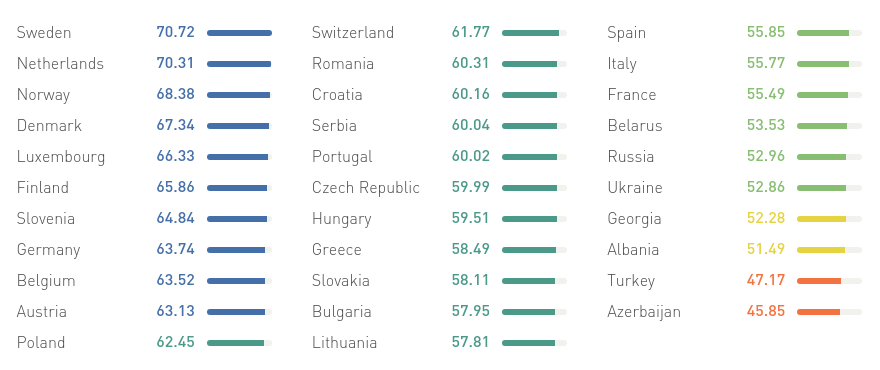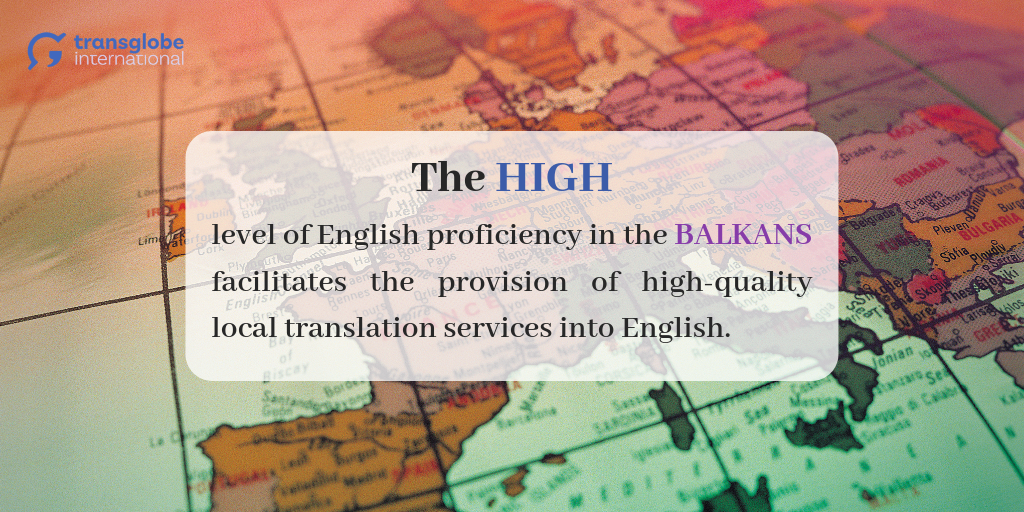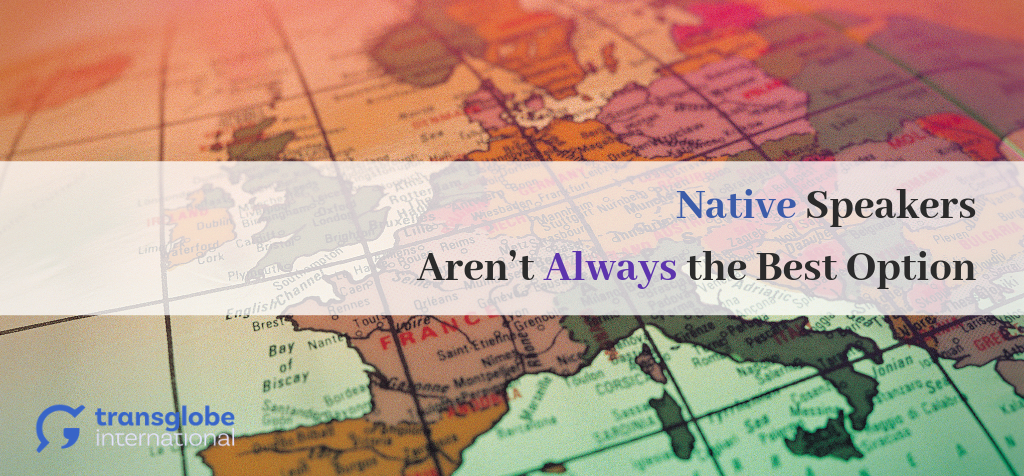Native Speakers aren’t Always the Best Option
Everywhere in the world of translation the phrase “native speaker” is considered a synonym of quality. Consequently, native speakers are mentioned as a competitive advantage on websites and in presentations, brochures, ads, campaigns, and other marketing materials. And it’s all very okay. It makes sense to assume that a native translator has a better understanding of their mother tongue compared to a non-native linguist. Most of the time this is true, however sometimes a different approach may be more beneficial. Read on to find out how.
Mother tongue
Your native language is usually the first language you learn as a child. It’s the language of your parents and home country. Everything you learn is in that language and it’s the easiest and most natural way of expressing yourself. This is one of the reasons why it’s a standard and widely accepted requirement for translators to be native speakers of the target language. It is considered that translating into your mother tongue gives you an advantage over translators who have learned it as a foreign language. Another reason for that is that being native gives you daily access to various dialects, new jokes, puns, etc. You are easily able to understand subtle hints, references, and to get deep in every context.
Is being native enough?
Considering this article’s title, you may already know where this is going. Being native is not something we choose. It’s something we are by definition. Every person on Earth is a native speaker of their mother tongue. And this is exactly where the problem lies :). Being native is simply a given, it’s not something that guarantees you’ll become a linguist, let alone a good one. Just notice the majority of people in your neighbourhood, city or country. Are they speaking with a dialects or using slangs? Are their grammar, spelling, punctuation and word order perfect? Do they use simple sentences or complex linguistic structures? You will get as many answers as the questions asked. Because people are not linguists by design. Communication is intrinsic for humans, but with very different requirements compared to localization. It has to be clear, simple and just good enough – no more, no less. So while it’s a good foundation, being native by itself is in no way enough.
Native speakers and education
It shouldn’t be a surprise that getting a good language education could immensely improve your native linguistic proficiency and competences. With a good foundation in your mother tongue you’ll be free to choose your favourite foreign language and focus on improving your multilingual skills. Becoming proficient in any foreign language requires years of studying and practice and even then it can be hard to reach native levels. Hard but surely not impossible. As we already concluded, being native is an advantage only with an adequate education and lots of experience.

English Proficiency Scores of European countries in 2018.
Credit: EF Education First
Not all languages are equal
The Big Five
Let’s take a look at the 5 most widely used Western languages – English, French, Italian, German, Spanish (EFIGS). Due to their popularity on Earth there are plenty of native translators fluent in one or more of the other EFIGS languages. In such situations there is no reason to even think about hiring a non-native translator. There are just so many of them :).
The “other” languages
The picture changes abruptly when we go to the not-so-popular languages, e.g. from Eastern Europe and the Balkans. The languages here belong to the Indo-European family and include Slavic, Hellenic, Indo-Ariyan languages as well as Albanian. As you may guess, culturally and phonetically different languages such as for example Bulgarian or Serbian are not usually taught in Western schools. In fact, you’d have to really want to learn them to find a way. And also, it would be really time consuming to master a foreign language in a country where none of your peers use it, the TV doesn’t show it and the Internet is in English only. But even if you did, you would be one of only a few specialists for this language pair. Naturally, all this leads to a higher translation rate.

The effects of a high English proficiency in the Balkans and Eastern Europe.
Credit: TransGlobe International
In Eastern Europe and the Balkans people start learning English in the kindergarten. It’s everywhere – from the candy wrappers to the billboards on the street. Take Bulgaria for example. The teens chat and watch TV series in English, industry specialists collaborate in English, young people switch between Bulgarian and English with ease in multinational social gatherings. The high level of proficiency in English in the region means there are many skilled native Bulgarian translators with native or very-near-native English competences. And most certainly at a more competitive price compared to native English linguists.
A better approach to native speakers
When translating a BG-EN project, choosing an Bulgarian translator is actually a smart choice. Of course, proofs of experience and translation skills are still required – as with any language professional. After the translator has passed your initial tests, you can be sure you’ve made the right decition. Wanna be extra careful? Use a native English-speaking editor to go over the completed translation. This way you’ll get the best of both worlds – perfect understanding of the Bulgarian source and a polished to the native-level translation. And don’t forget to share feedback with the translator!
Are you interested in finding out the level of English proficiency of our native Bulgarian linguists? Send us an email at hello@transglobeinternational.com or a quote request! And don’t forget to enter your email here to receive one of our Editor’s Choice articles for free 🙂


Trackbacks/Pingbacks